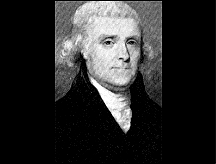
|

|
This course may be repeated for credit.
This lecture/discussion course offers a sustained analysis of a selected topic central to an intellectual history of the United States. The subject for Spring 2005 is the role that religion has played in the intellectual life of the nation. We will examine both the work of American theologians, from the Puritans to the present, and the ways that other American intellectuals have thought about religion and its function as a language of authority in both state and society. We will explore the ramifications of conceptions of the United States as a Protestant and millennial nation, the challenges to that conception posed by the growing diversity of religions in the country, and the emergence of a commitment to religious pluralism. From participation in a transatlantic evangelical culture to the rise of the Social Gospel and theological modernism through the fundamentalist response to liberal religion and Darwinism, the course charts the influence of Protestant Christianity in American culture and evaluates claims about the development of a distinctively American religious style. The replacement of overt anti-Catholicism and anti-Semitism with the notion of a Judeo-Christian heritage that celebrated the incorporation of Protestant, Catholic and Jewish traditions into American civil religion figures as the central dynamic of the twentieth century. The course concludes with a consideration of the culture's surprising resistance to the secularist tendencies of most other western powers and the continuing centrality of religion(s) in the national culture.
COURSE FORMAT: Lecture/Discussion
Level: UGRD Credit: 1 Gen Ed Area Dept: SBS HIST Grading Mode: Graded
Prerequisites: NONE
Last Updated on MAR-21-2005
Copyright Wesleyan University, Middletown, Connecticut, 06459